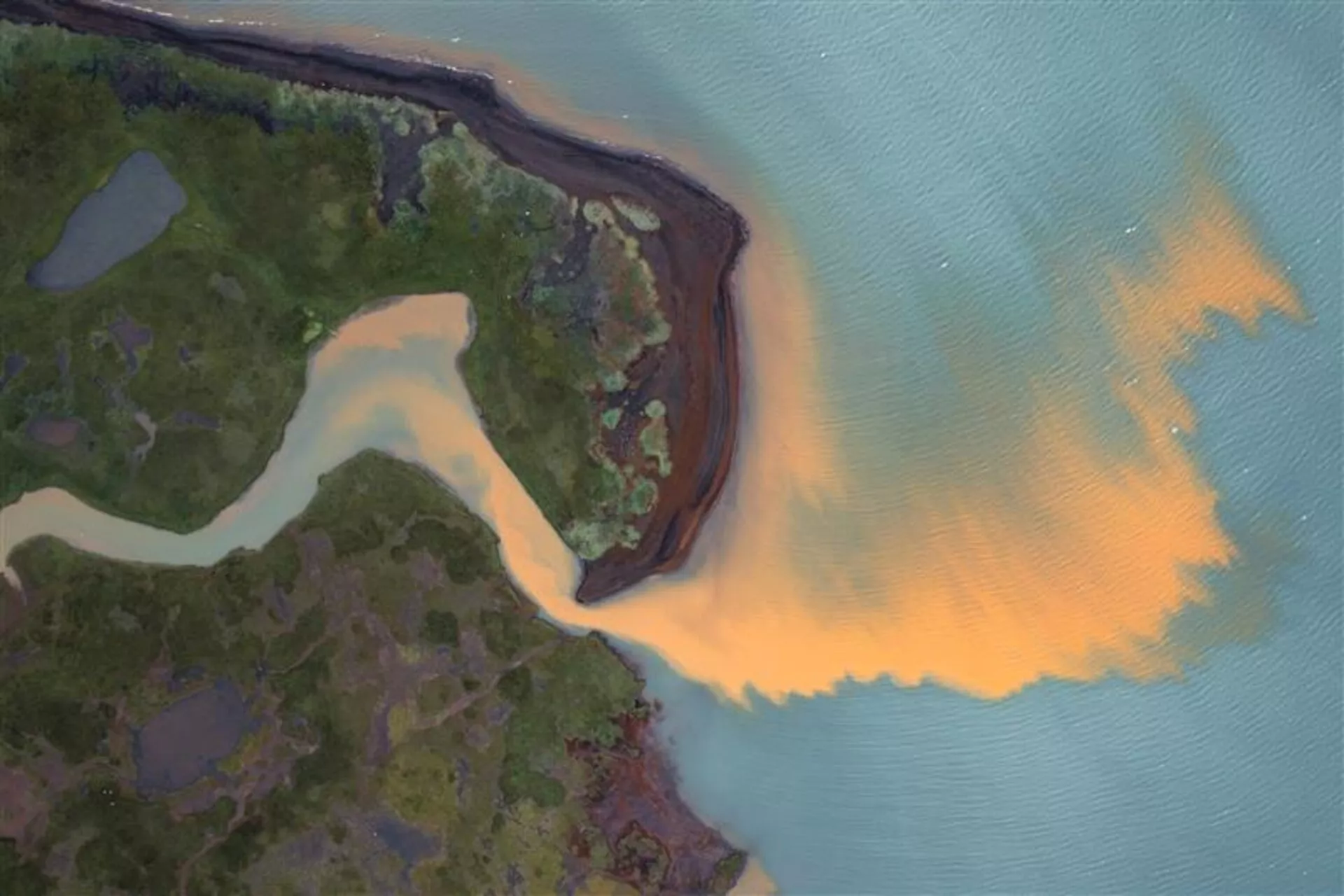
Salt water, new energy source
Could osmotic energy be the answer to the exponential growth of global energy demand? Produced by the interface between fresh water and salt water, this intrinsically blue energy has yet to be exploited at scale. However, a new French technological advance could accelerate its roll-out.
With the continued exponential growth in our demands for digital computer processing, above all with the advent of AI, global energy consumption is also on a seemingly unstoppable upward trajectory. This ever-increasing need for energy represents a crucial challenge within a context of ongoing and intensifying climate change. An acceleration in the development of de-carbonised energy sources as substitutes for fossil fuels, which remain predominant in the global energy mix, has never been more urgent.
A colossal reservoir of underutilised clean energy
Faced with these energy challenges, the race to implement a new energy source is gaining momentum. Osmotic energy or 'blue energy', exploits the difference in salinity between seawater and freshwater. The principle is as follows: when two bodies of water with different salinity levels are separated by a semi-permeable membrane, fresh water naturally migrates across the barrier towards the salt water, balancing out the differing ionic concentrations. This movement generates hydraulic pressure that can be captured and converted into electricity, thus offering a particularly innovative and renewable energy source. This is what we call the natural phenomenon of osmosis.
By exploiting the many locations across the world where rivers and streams flow into the sea, colossal amounts of energy could be generated. According to the International Energy Agency (IEA), the theoretical global potential of osmotic energy is estimated at approximately 2,000 TWh/year, equivalent to the production of 1,000 nuclear reactors, compared to the current world total of about 4401. Such immense potential capacity is not the only virtue of this 'blue' energy: it does not suffer from intermittence, unlike solar and wind energy, and is completely carbon-free if produced using bio-based materials.
A French industrial champion of osmotic energy
Despite its promise and having been known about for decades, osmotic energy, remains unexploited on a large scale. In the United States, Japan, Norway and France, many companies are developing the membranes necessary to allow osmotic energy to be produced. However, none has so-far moved beyond research into large-scale production. Currently, costs are still proving to be too high and there are technical and financial challenges in scaling from prototypes to industrial operations.
However, a new French breakthrough could finally improve the prospects of making such technologies viable. After five years of research, the Rennes-based company, Sweetch Energy, has succeeded in developing a new type of membrane that is more efficient, cost-effective and suitable for industrial-scale production, drawing inspiration from the work of physicist and CNRS Research Director, Lydéric Bocquet.
Based on nanoscale membranes made from bio-sourced materials, its INOD® technology would multiply membrane performance by 20 and divide material costs by 102. An initial demonstration plant has now been deployed on the River Rhône, near the Barcarin lock, in partnership with the Compagnie nationale du Rhône (CNR) and EDF Hydro.
This pilot project marks a step-change in the development of osmotic energy, with a targeted power output increase of around 700 MW3 over the next few years. By laying the foundations for a sustainable industrial sector, this project could actively contribute to strengthening national energy sustainability and sovereignty. In the long term, osmotic energy could provide 15% of global electricity needs, avoiding the emission of 4 Gt of CO2 every year.
Discover our feature on "The Race for Innovation to Preserve the Blue Gold" by clicking here.
Towards a more sustainable maritime economy
Osmotic power is one of the many facets of the maritime economy, whose transition to a more sustainable economy is essential for the preservation of the oceans.
Financial institutions thus have a key role to play, which Societe Generale approaches through four levers:
Financing the transition of maritime transport,
Framing sensitive sectors (fisheries, aquaculture, transport) with robust environmental policies,
Supporting conservation initiatives, such as the non-profit organisation The Ocean Cleanup, which develops technologies to remove plastics from oceans and rivers,
Mobilising stakeholders around ocean issues. The Group contributes to collective publications alongside other financial institutions, companies, and academic partners, and engages its employees to embed ocean-related issues into the Group’s culture. The solidarity sports challenge, Move for the Oceans, will mobilise more than 20,000 employees across more than fifty countries from October 2 to 12, 2025.
Learn more about Societe Generale’s actions to preserve the oceans.
Contributing to ocean preservation - Société Générale
Sources
1 - World Nuclear Association, 2023
2 - Sweetch Energy
3 – https://concertation-strategie-energie-climat.gouv.fr/sites/default/files/2024-12/N%C2%B068%20-%20Sweetch%20Energy%20-%20Cahier%20d%27acteur%20PPE.pdf
DISCLAIMER :
This document has no contractual value. It is not intended to provide an investment service such as investment advice, a related investment service, arbitration advice or legal, accounting or tax advice from Société Générale Private Banking France (‘SGPB France’), which cannot therefore be held liable for any decision taken by an investor solely on the basis of its content. SGPB France undertakes neither to update nor to modify it.
Before making any investment decision, please review the details of the documentation for the service or product being considered, including any associated risks, and consult your legal and tax advice. If the document is consulted by a French tax non-resident, he or she will have to ensure with his or her legal and tax advisors that he or she complies with the legal and regulatory provisions of the jurisdiction concerned. It is not intended for distribution in the United States, or to a U.S. tax resident, or to any person or jurisdiction for which such distribution would be restricted or unlawful.
The past performance information that may be reproduced is not intended to guarantee future performance. These future performances are therefore indicative. The return to investors will vary depending on market performance and the shelf life of the investment. Future performance may be subject to tax, which depends on your present and future personal situation.
Societe Generale has put in place a policy to manage conflicts of interest. SGPB France has put in place (i) a policy to handle complaints made by its customers, available on request from your private banker or on its website and (ii) a policy to protect personal data (https://www.privatebanking.societegenerale.com/fr/protection-donnees-personnelles/). At any time and without charge, you have the right to access, rectify, limit processing, erase your data and the right to object to their use for the purposes of commercial prospecting by contacting our Data Protection Officer by email (protectiondesdonnees@societegenerale.fr). In the event of a dispute, you can lodge a complaint with the Commission Nationale de l’Informatique et des Libertés (CNIL), the supervisory authority responsible for compliance with personal data obligations.
This document is issued by Societe Generale, a French bank authorized and supervised by the Prudential Control and Resolution Authority, located at 4 Place de Budapest, 75436 Paris Cedex 09, under the prudential supervision of the European Central Bank (‘ECB’) and registered with ORIAS as an insurance intermediary under number 07 022 493, orias.fr. Societe Generale is a French public limited company with a capital of EUR 1 003 724 927.50 on 17 November 2023, whose registered office is located at 29 boulevard Haussmann, 75009 Paris, and whose unique identification number is 552 120 222 R.C.S. Paris (ADEME FR231725_01YSGB). More details are available on request or at www.privatebanking.societegenerale.com/. This document may not be communicated or reproduced in whole or in part, without the prior written consent of SGPB France.





